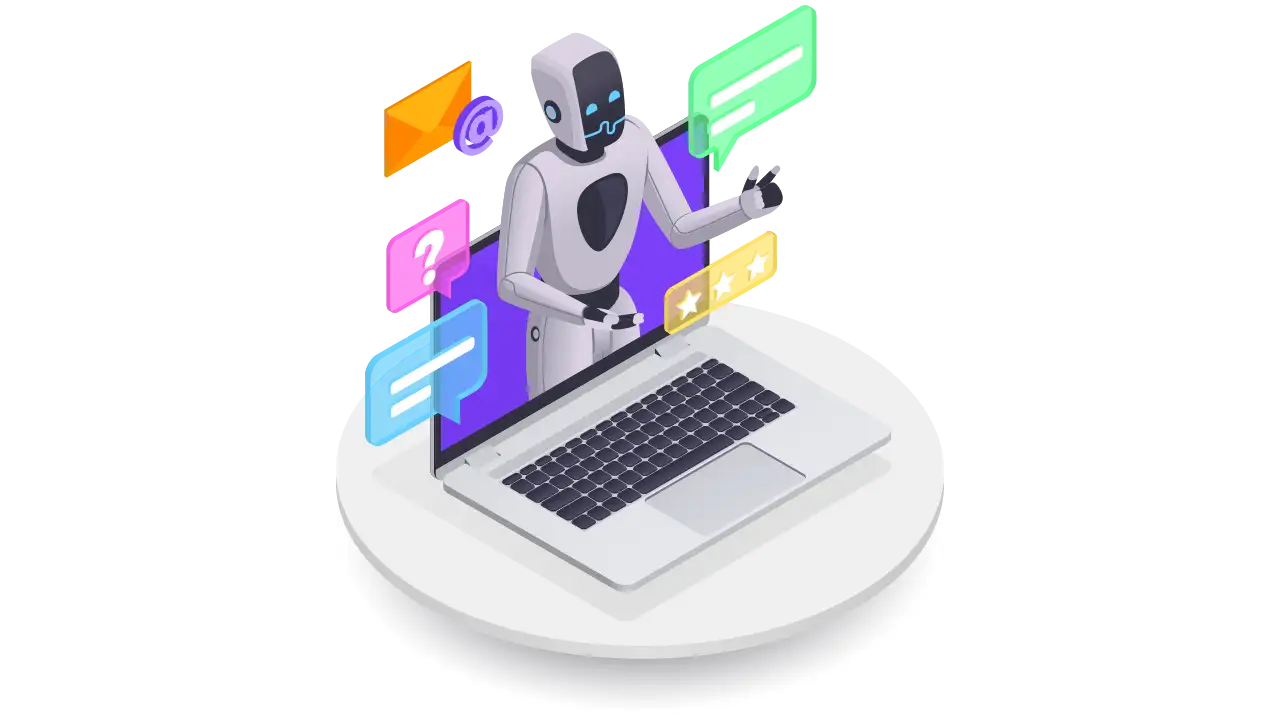


Discover how Indian companies in 2025 are transforming employer branding with ESG, DEI, transparency & purpose to attract top talent.
In 2025, the very fabric of employer branding in India is undergoing a profound, non-negotiable transformation. As artificial intelligence (AI), advanced automation, and continuous digital disruption reshape every facet of industries across the subcontinent, professionals are meticulously re-evaluating what truly constitutes a fulfilling and sustainable career. The antiquated notion that a job is solely about paychecks, hierarchical titles, or even job security is rapidly fading. Instead, the focus has shifted decisively towards intrinsic meaning, shared organizational values, and comprehensive personal and professional growth. For organizations striving relentlessly to attract and retain the most sought-after talent in a fiercely competitive market, this demands nothing less than a complete, fundamental reimagination of their corporate branding for talent attraction strategies—a metamorphosis that must originate from the deepest core of their organizational DNA, working its way outwards.
Today, the strategic importance of employer branding in India 2025 cannot be overstated; it is far from a mere marketing accessory or an afterthought. It stands as a paramount strategic imperative. The burgeoning and increasingly vocal Indian professional workforce, particularly the dominant cohorts of Gen Z and Millennial job expectations, unequivocally crave more than transactional relationships with their employers. They are irresistibly drawn to companies that not only invest tangibly in their holistic development but also champion meaningful societal impact, and—critically—cultivate genuinely inclusive, people-first cultures where every individual feels a sense of belonging and value. Those forward-thinking organizations that adeptly embrace and adapt to these evolving paradigms are rapidly solidifying their positions as formidable talent magnets; conversely, those clinging to outdated, purely compensation-driven models risk an accelerating decline into irrelevance within India's dynamic economic landscape.
The contemporary Indian professional is fundamentally seeking a purpose that transcends the daily grind. They aspire to contribute to something larger than themselves, to be an integral part of a mission that deeply resonates with their personal values and aspirations. A robust, authentic employer branding in India 2025 strategy serves as the primary, most compelling conduit for communicating these deeply held organizational values, overarching mission, and collective purpose. It is this authentic narrative that distinguishes a company in an increasingly crowded and noisy talent pool, where differentiation is key. Furthermore, a compelling employer brand significantly impacts an organization's inherent ability to attract, engage, and ultimately retain high-caliber individuals who are actively seeking profound alignment and a genuine sense of belonging within their professional lives. It cultivates a virtuous cycle where talented individuals are not just hired, but become passionate advocates for the brand.
Environmental, Social, and Governance (ESG) principles have unequivocally transcended their traditional confines within investor reports to become an absolutely foundational pillar of corporate branding for talent attraction. In the dynamic Indian context, ESG in Indian companies is no longer a peripheral concern or a tick-box exercise; it is profoundly shaping how potential employees perceive an organization's integrity, its ethical compass, and its long-term vision for a sustainable future. The scrutiny on corporate responsibility has never been higher.
From demonstrable and measurable efforts in reducing carbon footprints and adopting renewable energy sources across operations, to championing ethical leadership, upholding stringent fair labor practices, and genuinely supporting local communities through impactful initiatives, a strong, verifiable ESG commitment signals that a company's aspirations extend far beyond mere quarterly profitability. Organizations that are effectively and transparently integrating ESG into their purpose-led employer brand are achieving more than just filling vacancies; they are cultivating deep-seated trust and enduring respect among job seekers who are increasingly discerning about the ethical stance and societal impact of their potential employers. This growing discernment reflects a palpable demand for truly sustainable HR practices that are intrinsically aligned with pressing global environmental and social challenges, appealing to a generation acutely aware of climate change and social inequality.
In an age characterized by unprecedented digital transparency, where platforms like LinkedIn, Glassdoor, and Ambition Box provide real-time, unfiltered insights into company cultures and employee experiences, transparency has become an absolutely non-negotiable cornerstone of successful employer branding. Organizations that communicate openly and honestly about their core values, their leadership's vision, and even candidly acknowledge their challenges, are building unparalleled credibility and fostering profound, unwavering loyalty among both current and prospective employees. This unwavering candor is absolutely central to effective employer reputation management in the digital era.
A future-ready Employee Value Proposition 2025 is now a vital, dynamic differentiator in the talent market. Modern employees are not just seeking roles; they are demanding opportunities that evolve concurrently with rapid technological advancements, offering continuous avenues for growth and proactively preparing them for the ever-shifting landscape of the future of work. Comprehensive learning paths, robust mentorship programs that foster deep professional relationships, industry-recognized certifications, and proactive reskilling and upskilling programs India are no longer optional extras. They demonstrate a tangible, long-term investment in employee potential and career longevity. This profound focus on continuous development is a key manifestation of HR innovation in 2025, signaling to talent that the organization is committed to their long-term employability and growth, not just their immediate utility.
Beyond professional development and career progression, the holistic well-being of employees has undeniably emerged as an absolutely foundational component of the modern EVP. Mental wellness at workplace India is no longer just perceived as a supplementary benefit or a nice-to-have; it has solidified its position as a fundamental expectation and a critical indicator of a genuinely caring employer. Purpose-led organizations are proactively prioritizing comprehensive well-being through diverse strategies, including implementing genuinely flexible work models that accommodate individual needs, actively fostering environments of psychological safety where employees feel secure in expressing themselves and taking risks without fear of reprisal, and developing robust burnout prevention strategies that address the root causes of stress. These initiatives are not merely supplementary perks but are indispensable components of a truly human-centric employer brand. The pervasive emphasis on flexible work and psychological safety underscores a deep, authentic commitment to employee welfare, recognizing that a healthy mind is paramount to productivity and overall job satisfaction. Companies are investing in EAPs (Employee Assistance Programs), mindfulness workshops, and creating designated quiet spaces to support mental health.
At the absolute core of impactful corporate branding for talent attraction lies an authentic, deeply embedded sense of purpose. Today's workforce, profoundly influenced by Gen Z and Millennial job expectations, is inherently driven by a powerful desire to contribute to something meaningful—something that transcends individual gain. Whether that contribution manifests in climate action, championing social equity, or pioneering innovation for the greater good, companies with missions that clearly extend beyond purely financial margins are attracting not just applicants but dedicated, passionate, and highly committed ambassadors. This strong purpose-led employer brand creates an emotional connection that goes far beyond traditional incentives like salary or benefits. It cultivates an inclusive workplace culture where individuals truly feel their contributions are valued and directly contribute to a larger, positive impact on society or the environment. This sense of collective impact becomes a powerful differentiator in attracting individuals who seek alignment between their personal values and their professional endeavors.
These demographic cohorts, rapidly moving into positions of dominance within the Indian workforce, exhibit a distinct set of priorities. They place paramount importance on value alignment, continuous personal growth, and demonstrable societal impact over traditional career markers such as hierarchical titles or fixed career paths. Their evolving Gen Z and Millennial job expectations are profoundly influencing talent acquisition trends India, compelling companies to fundamentally redefine their appeal and tailor their EVPs to meet these new demands. They seek mentorship, rapid skill development, and opportunities to lead impactful projects early in their careers.
The significant shift from Corporate Social Responsibility (CSR) to Environmental, Social, and Governance (ESG) signifies a fundamental evolution. It represents a move from largely philanthropic or reactive gestures (CSR) to integrated, systemic responsibility across environmental stewardship, social equity, and robust governance practices. ESG in Indian companies now demands demonstrable, measurable actions and transparent reporting, making it an extraordinarily powerful tool for employer reputation management. It's about embedding ethical practices into every layer of the business, not just allocating funds to external causes. This proactive approach resonates deeply with a talent pool that scrutinizes a company's true commitment to its values.
DEI initiatives in India are experiencing a crucial expansion, moving beyond a primary focus on gender diversity to embrace a far broader and more nuanced spectrum of identities. This increasingly sophisticated lens includes not just gender but also caste, disability, neurodiversity (e.g., autism, dyslexia), LGBTQIA+ identities, and significant regional diversity. Companies that genuinely embed DEI principles into their daily operations, from recruitment to career progression, and authentically showcase an inclusive workplace culture, signal sincerity, empathy, and respect for individual uniqueness. These qualities are critical drivers in modern talent acquisition trends India, attracting a diverse, high-performing talent pool that feels truly valued for who they are. This involves implementing blind hiring practices, providing accessibility accommodations, and fostering employee resource groups (ERGs) for various communities.
The pervasive influence of platforms like LinkedIn, Glassdoor, Ambition Box, and even popular social media channels means that employer reputation management is no longer a periodic exercise but a constant, real-time engagement. Companies must maintain consistent, authentic, and honest communication across all touchpoints to build and sustain trust and credibility. This is especially crucial with a digitally native workforce that actively seeks out and trusts peer reviews and authentic employee testimonials over corporate marketing messages. Any disconnect between the proclaimed employer brand and actual employee experience will be quickly exposed, undermining recruitment efforts.
Also Read : Building a Strong Employer Brand in 2025
In an era defined by rapid technological advancements and the increasing prevalence of AI, a strong organizational focus on continuous learning and adaptability is absolutely vital. Reskilling and upskilling programs India are no longer perceived as optional benefits but are essential elements of a compelling EVP. They demonstrate an organization's long-term commitment to its employees' development, ensuring their skills remain relevant and preparing them for future roles in a rapidly evolving economy. This proactive investment in employee capabilities not only attracts ambitious professionals but also signifies cutting-edge HR innovation in 2025, fostering a culture of continuous improvement and resilience. Many leading companies are partnering with e-learning platforms and offering personalized learning paths to empower their workforce.
The seismic shifts brought about by the global pandemic have firmly ingrained flexible work models into employee expectations. Hybrid work, remote-first options, and even the exploration of four-day workweeks are becoming standard offerings. Coupled with a strong emphasis on fostering psychological safety—where employees feel secure enough to voice concerns, offer ideas, and even admit mistakes without fear of retribution—these elements are crucial for promoting mental wellness at workplace India. They are also pivotal in attracting talent that prioritizes work-life integration and a healthier, more balanced professional existence. Companies that champion this holistic well-being are seen as truly caring employers, boosting both recruitment and retention.
The future of employer branding in India is unequivocally anchored in authenticity, a deeply ingrained sense of purpose, and genuine human connection. As the expectations of talent continue their rapid and irreversible evolution, organizations must strategically transition from merely offering transactional perks to cultivating truly transformative and enriching cultures. The most resilient, magnetic, and successful brands will be those that courageously lead with robust ESG in Indian companies, deeply integrate comprehensive DEI initiatives in India into their organizational DNA, and champion unwavering transparency, holistic employee well-being, and continuous opportunities for upskilling and reskilling. This represents not just the evolution of employer branding in India 2025; it embodies corporate branding for talent attraction in its most evolved, most impactful, and most profoundly human-centric form, ensuring sustained competitive advantage in the war for talent.We built a suite of live dashboards and reports across seven key dimensions to ensure continuous improvement:
Corporate branding is paramount in 2025 because modern talent, particularly Gen Z and Millennial job expectations, now prioritizes deep value alignment, continuous personal and professional growth, and the opportunity to make a tangible impact. A strong, authentic corporate brand effectively communicates these critical attributes, enabling organizations to distinctly stand out and resonate deeply in an increasingly competitive and crowded talent market, attracting individuals who are seeking more than just a job.
ESG in Indian companies significantly enhances talent attraction by signaling an organization's genuine commitment to environmental sustainability, social responsibility, and ethical leadership. In India, job seekers are actively and meticulously evaluating how companies treat their employees, their impact on the planet, and their approach to profits. A strong ESG framework, when communicated transparently, becomes a powerful component of a purpose-led employer brand, drawing in talent that values responsible corporate citizenship.
Essential DEI initiatives in India extend beyond traditional gender representation to include truly inclusive hiring practices, equitable policies across the board, broad representation across diverse geographies and identities (such as caste, disability, neurodiversity, and LGBTQIA+ communities), and robust support systems for underrepresented groups. These practices collectively contribute to fostering a truly inclusive workplace culture that attracts and retains a diverse, high-performing, and engaged talent pool, ensuring that every individual feels valued and belongs.
Companies can effectively leverage skill development as a powerful branding strategy by providing extensive learning opportunities, clearly defined and transparent career progression paths, and comprehensive reskilling and upskilling programs India. This commitment demonstrates a long-term investment in employee growth and future-readiness, which is a key attractant for ambitious professionals. It signals an organization's dedication to HR innovation in 2025 and its role in fostering continuous personal and professional development.
Transparency is critically important today because talent now possesses unprecedented access to insider views of your company culture through various online platforms like Glassdoor, LinkedIn, and internal social networks. Honest, consistent communication across all channels builds deep credibility and trust, effectively differentiating genuine, value-driven brands from those merely spinning a superficial narrative. Any perceived disconnect between the proclaimed employer brand and the actual employee experience can severely undermine employer reputation management and deter top talent.

Organizations operating in distributed, high-volume, or high-variability environments, such as HR shared services...

As the digital landscape evolves, data-powered organizations are gaining a competitive edge. Data has become the new currency...

The world of work is evolving at an unprecedented pace, and outplacement and workforce transition consulting...

The workplace is rapidly evolving at an unprecedented pace. As organizations navigate a landscape increasingly influenced by artificial intelligence...

Artificial Intelligence (AI) isn’t just some sci-fi fantasy anymore—it’s really changing the way companies work today...

In today’s fast-paced business world, People Analytics is reshaping the way organizations attract, engage, and retain talent...